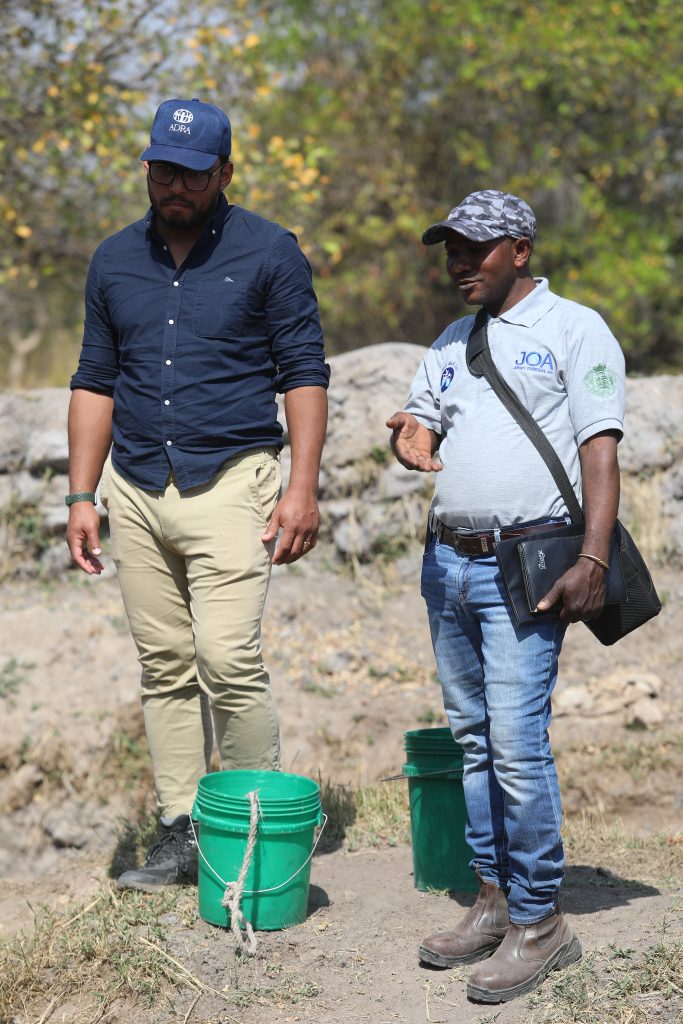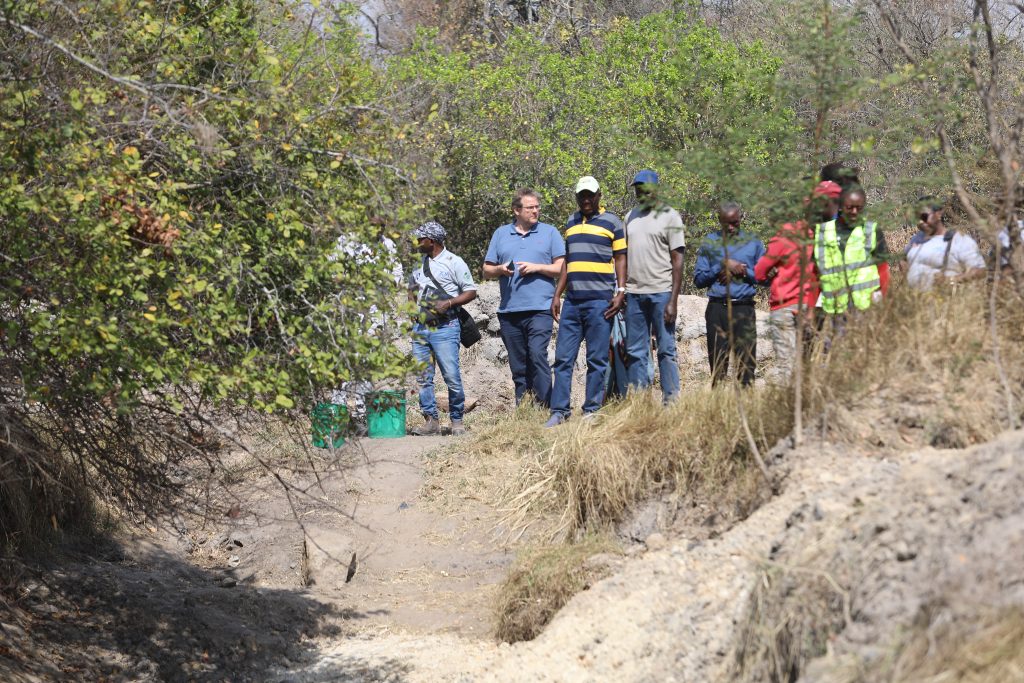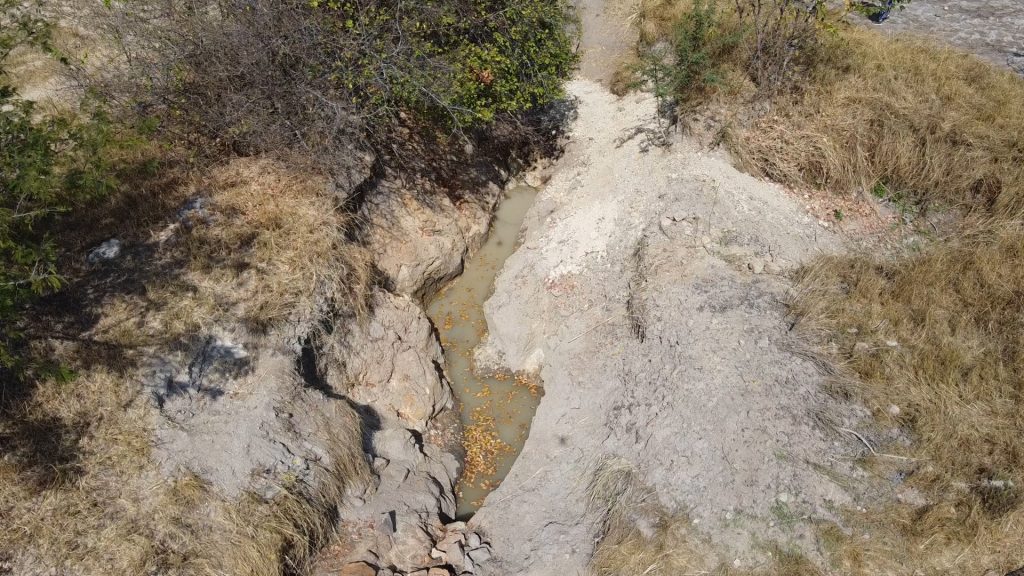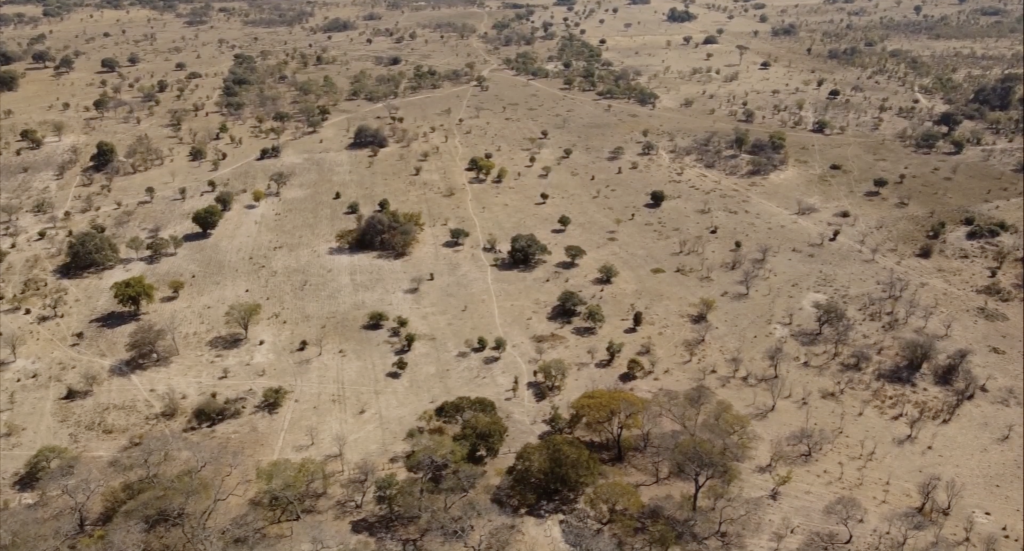The Jersey Breed Focused Dairy Development project in Zambia (JBFDDZ) 2022-2025 aims to sustainably improve livelihoods, resilience and dairy productivity of smallholder farmers. ADRA-UK is implementing this project in partnership with the Royal Jersey Agricultural and Horticultural Society (RJAHS) with funding from Jersey Overseas Aid. Our ADRA dairy development project in Zambia was half-way into its 3 years plan, when we visited it this July, José Orozco, ADRA-UK Programmes Officer and myself.

During the first 18 months of the project, ADRA Zambia had started activities in 3 regions: Choma, Chongwe and Chibombo. The objective of the project has been to increase income for dairy farmers by enhancing milk production. We witnessed first-hand the gratitude of local farmers towards the project field coordinators. They have been instrumental in linking communities to Milk Collection Centres, in teaching them about animal upkeep, hygiene, fodder, resilience to diseases and reproduction. Linda, the headwomen for the Hachintundwe grouping, two hours away from Choma city on track roads, exclaimed passionately: ‘ADRA has taught us how to save’. She and her 30 members have committed to save at least 50 kwacha per month (approximately £1.50). With these funds, every 3 to 4 months they draw a name tag out of a gourde and one of the members of the Committee is able to buy a cow. They have bought 8 so far.

Given the vulnerable nature of the contexts in which we operate, it is not unusual for ADRA projects to be impacted by disaster half-way into implementation, such as earthquakes, floods, hurricanes or conflicts. Our current Zambia dairy development project is no exception. Before travelling, we read about the drought that was affecting millions of people in Zambia, but also in Zimbabwe, Angola, Botswana and Malawi. But one thing is to read it on the news, another is to witness people rationing water to drink, to wash their children, to feed the animals. The consequences of lack of water are far reaching. The harvest in the Southern region of Zambia, the most affected, was zero in some places. We crossed field after field that had been ploughed and sown in preparation for the rainy season last year, but the rains did not materialise and crops have simply withered and dried out. In a normal season, with the harvest taking place in April, farmers should now be food secure, but lack of water means lack of food. Zambia is one of the countries that has declared an emergency as it grapples with the effects of El Niño weather phenomenon.
The irony cannot be lost on us. That the country of the Victoria Falls, where an average of 500 million litters of water come crashing over every minute (April/May), is the same country where only 2 hours away, in the next few months, there is a high risk that animals will start to succumb due to the lack of water and households will experience a rise in hunger.

The provision of energy nationwide is also being severely affected as Zambia depends primarily on hydroelectric power to supply its electricity grid. Power cuts are being extended and more frequent, depriving milk collection centres from the electricity needed to keep the milk from going off. In an environment where the staple crop, maize, as well as other crops have collapsed, the proceeds of the sale of milk are crucial for access to food, sending children to school and buying essentials such as medicines.
In the village of Pangwe, a local woman, Fales, showed us the cart, which is pulled by oxen every day to go and fetch water at a borehole 8 km away. But even there, the water is scarce and the local people are not pleased she is coming. One of the plastic containers is sealed. ‘This one is for drinking water’ she explained. I noticed they had dunked a small tree branch full of leaves on two of the containers and she explains that some of the lids are missing and the leaves reduce spilling during the return trip from the water point.
As I opened the tap at the little hotel we stayed in Choma city, I could not get out of my head the families of Pangwe, that had received us so warmly with singing and dancing. Their words reverberated on my mind: ‘we are thirsty, but we just sip sip, as little as possible, to save water’. The rainy season is still far away. November is the earliest we can expect the first rains.
In another region covered by the project, in Chibombo district, Meeknos, an elderly Community leader, challenged us to come and see their waterpoint. This one was not far, some 100 meters from the village, but it was only an open hole on the ground with stagnated dirty water and flying insects. This water they collect, leave it on a bucket for the dirt to settle and then use it for cooking and washing. As much as possible, they chlorinate the water they drink. Yet, this water is already running low and will not last until the rains. It will run out, much sooner!
ADRA is desperately seeking partners to install boreholes in priority Communities which are the most affected and where we can strategically serve the largest number of people and animals. Given the context, we will require deep boreholes with solar power pumps, which will last and provide multiple water points for more than one Community. These are currently estimated at about £8,000 each, but prices are likely to increase as the crisis worsens, so the sooner these could be contracted the better. As a minimum target, we are looking to source at least 3 boreholes in the next few weeks. If you are able to help, no matter the amount, please get in touch with ADRA-UK.

Although water has never been an abundant commodity, in some of these regions this situation is unprecedented. Once again, a field monitoring trip brought me back to the basics, to the Words of the Bible. To the understanding that Water is Life and without the living Water, there is no real Life. The gift of Jacob, a well dug in a plot in Sychar, was indeed the gift of life, the greatest gift for an arid land, where centuries later Jesus would sit down at the hottest hour and tell a low-ranking foreign woman that He was the Messiah, the One and Only who could satisfy the thirst of the world!
